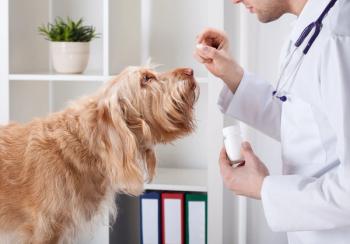
Microchip debate seeps into agriculture bill
Washington —The microchip controversy has entered Congress as an amendment to the House's agriculture appropriations bill for 2006.
WASHINGTON —The microchip controversy has entered Congress as an amendment to the House's agriculture appropriations bill for 2006.
Dr. Rosemary LoGiudice
House Resolution 2744 directs the United States Department of Agriculture's (USDA) Animal and Plant Health Inspection Service (APHIS) to back one microchip standard for companion animals, ending the product wars between companies offering diverse and incompatible identification systems.
While the Senate's version does not, at presstime, include the microchip amendment, the House side specifically supports "the microchipping of pets under the universal 134 kHz International Standards Organization (ISO) system."
"The committee directs APHIS to develop the appropriate regulations to implement the universal 134 kHZ ISO system," the amendment says. If enacted, APHIS must report progress to Congress within 90 days, the amendment adds.
Muscle behind the measure
The ISO chip is manufactured by Crystal Import Corp., which sells more than 90 percent of its U.S. chips through Banfield, The Pet Hospital. While Banfield has lobbied heavily for the amendment, the company voluntarily stopped selling ISO chips after The Superior Court of California banned the distribution of the ISO chip without warning buyers that most shelters presently will be unable to read the 134-kHz chip because they use 125-kHz scanners.
Crystal Import countered by filing a federal antitrust suit against AVID Identification Systems and Digital Angel Corp., marketers of the more-established 125 kHz chip, asking for $10 million for monopolistic behavior, including preventing competition and discouraging adoption of competing technologies.
Dr. Bruce Little
AVID representatives also have lobbied on Capitol Hill. As expected, the company is against federal promotion of ISO technology.
Dr. Rosemary LoGiudice, American Veterinary Medical Association (AVMA) assistant director of membership and field services, isn't clear why. Though AVMA does not back one product or company, the association does favor USDA's involvement in mandating the ISO standard.
"The companies that produce the non-ISO microchip in the United States produce ISO technology for use and for sale elsewhere around the world," LoGiudice says. "Our primary concern is that all animals implanted with radio frequency identification technology be readable with any scanner. The bottom line is there must be a global scanning system in place."
A letter signed by AVMA Executive Vice President Dr. Bruce Little echoes LoGiudice's sentiments. AVMA wants "open technology" including a centralized database, he says.
"To further facilitate the process of reuniting pets with their owners, the AVMA believes that a centralized database should be established so data contained within implanted microchips can easily and rapidly be traced to the owner on record," the letter says.
Newsletter
From exam room tips to practice management insights, get trusted veterinary news delivered straight to your inbox—subscribe to dvm360.






